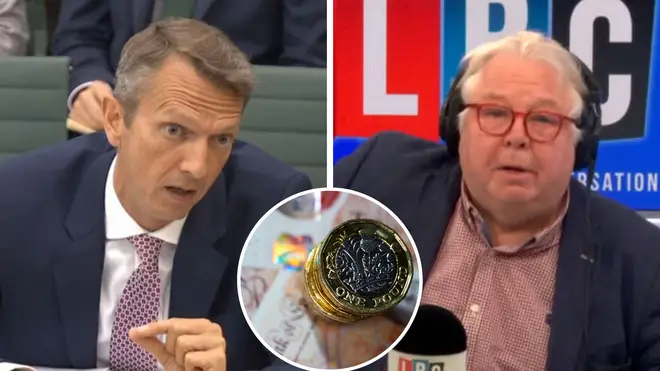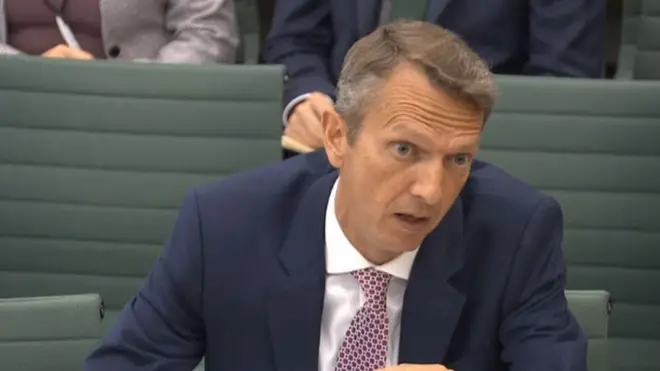
Oli Dugmore 4am - 7am
9 May 2022, 09:22 | Updated: 11 May 2022, 09:44

Inflation could hit more than 10% by the end of the year – and high rates could stick around through to 2024, the Bank of England's former chief economist fears.
Andy Haldane warned LBC's Nick Ferrari at Breakfast that the economic turmoil had surpassed even his worst expectations.
The finance expert, who left the Bank of England in June 2021, said he wished more had been done sooner to ease the cost of living crisis, and said he had advocated for action last year.
Asked by Nick if inflation could hit 10% or higher by the end of 2022, he said: "I think it could. I fear it might.
"This isn't a new thing, even this time last year... I was worried that price pressures were bubbling up. As it's turned out things have even surpassed my worst expectations.
Read more: Man in hospital after attempt to heat London home with timber to avoid soaring bills
"We're now looking prospectively at double digit interest rate of inflation, which is not quite getting back to the 1970s but getting on that way."
He added: "I'm slightly fearful it might stick around a while as well – this won't be come and gone in a matter of months. I think this could be years rather than months."

Mr Haldane said "forces" of cheap labour and cheap goods, often coming from abroad, are now in reverse – leading to price rises, and that the war in Ukraine and energy prices are not enough to explain price hikes across a range of goods.
Asked for his forecast, Mr Haldane – who has made a career move into becoming chief executive of the Royal Society for Arts – said: "It's certainly going to be the duration of this year and I think prospectively well into next or even beyond."
And when pressed over whether soaring inflation could last up to 2024, he said: "Could be."
He called for action in June, as Nick asked why the Bank of England had been "tardy" in taking steps to reduce inflation.

Boris Johnson speaks on cost of living crisis
Mr Haldane said he wanted a "slight touch on the brake – or even a slight reduction of pressure on the accelerator – a bit sooner".
"Had we done that, we probably wouldn't be talking about rate rises as big or as rapid as we now are," he said.
"Now to be clear, no amount of earlier squeezing on the brake would have fully prevented the cost of living crisis we're getting.
"Do I wish we'd done a little bit more a little bit sooner to tighten things up so there wasn't quite as much money chasing quite as many goods, which of course is what brings about rises in inflation in the first place? Yes, I do wish there had been slightly more prompt action."
Mr Haldane also said there is a more-than-evens chance of a recession.
Read more: Rattled Starmer pulls out of major speech amid Beergate 'hypocrisy' claims
The cost of living crisis has become the major point of contention, with critics accusing the Government of not doing enough to help people.
It has provided some financial assistance with paying council tax while opposition parties have called for a windfall tax on oil firms who have enjoyed a boom in revenue, with the money to be put towards providing more help for people.
On Monday, it emerged a man had tried to heat his home using timber, instead causing a house fire, prompting safety warnings about unsafe ways of dodging soaring energy bills.
Meanwhile, the Food Foundation found more than two million people were going whole days without eating because they could not afford to buy food.
A Government spokesman said: "We recognise the pressures on the cost of living and we are doing what we can to help, including spending £22 billion across the next financial year to support people with energy bills and cut fuel duty.
"For the hardest hit, we're putting an average of £1,000 more per year into the pockets of working families on Universal Credit, have also boosted the minimum wage by more than £1,000 a year for full-time workers and our Household Support Fund is there to help with the cost of everyday essentials."